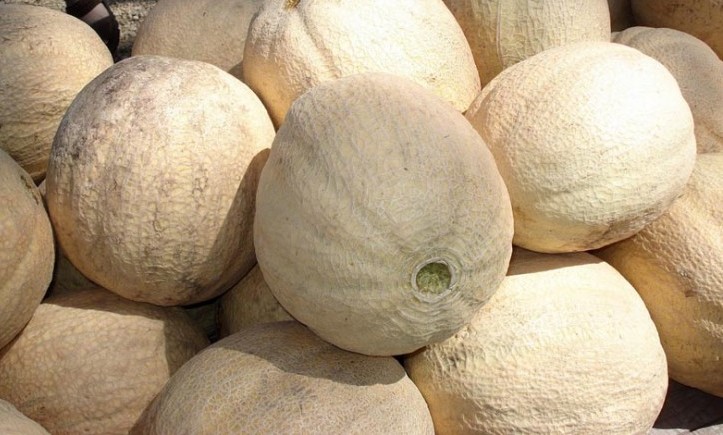Listeria: The deadliest food outbreak in a decade
A mysterious food-borne illness is responsible for severe flu-like symptoms across the country. Here's what you need to know

Health officials say contaminated cantaloupes have killed as many as 16 people and sickened at least 70 in the last few weeks. That's the deadliest food outbreak in the United States in more than 10 years. What exactly is this new illness, and what can you do to avoid it? Here, a brief guide:
What is this illness?
It's caused by listeria — a food-borne pathogen commonly found "in deli meats and other foods that have been improperly processed," says The Huffington Post. It's less common for listeria to be found in fruits and vegetables, but, as is evident in this case, it can happen. Listeria is quite resilient — cooking and pasteurizing can kill it, but the bacteria can survive freezing and refrigeration. The contaminated fruit in this case has been traced back to Jensen Farms of Holly, Colo., which has distributed cantaloupes to 25 states, reports The Washington Post.
The Week
Escape your echo chamber. Get the facts behind the news, plus analysis from multiple perspectives.

Sign up for The Week's Free Newsletters
From our morning news briefing to a weekly Good News Newsletter, get the best of The Week delivered directly to your inbox.
From our morning news briefing to a weekly Good News Newsletter, get the best of The Week delivered directly to your inbox.
What happens if you ingest listeria?
It can take weeks for the illness' flu-like symptoms — including fever, muscle aches, nausea, diarrhea, and sometimes death — to appear. Part of the delay may be due to people placing the contaminated fruit in their refrigerators, where the bacteria can still "grow and spread" — even jumping to neighboring foods, suggests Lindsay Goldwert at the New York Daily News. As such, officials say we're likely to see many more cases in the coming weeks.
Who's most vulnerable to listeria?
As with many flu-like illnesses, young children, the elderly, and others with weaker immune systems are most at risk. Pregnant women are also particularly susceptible to the illness.
A free daily email with the biggest news stories of the day – and the best features from TheWeek.com
What can you do to stay safe?
Washing potentially infected cantaloupe won't help, as the bacteria can spread inside the fruit. Thus, government officials want consumers to err on the side of caution: "If it's not Jensen Farms, it's OK to eat," says CDC director Thomas Frieden. "But if you can't confirm it's not Jensen Farms, then it's best to throw it out."
Sources: CBS News, Daily News, Huffington Post, Washington Post, WebMD
-
 Wilde Cambridge: home-away-from-home in a prime city spot
Wilde Cambridge: home-away-from-home in a prime city spotThe Week Recommends This laid-back aparthotel is the perfect base for a weekend of exploring
-
 The best alcohol-free alternatives for Dry January
The best alcohol-free alternatives for Dry JanuaryThe Week Recommends Whether emerging from a boozy Christmas, or seeking a change in 2026, here are some of the best non-alcoholic beers, wines and spirits to enjoy
-
 A lemon-shaped exoplanet is squeezing what we know about planet formation
A lemon-shaped exoplanet is squeezing what we know about planet formationUnder the radar It may be made from a former star